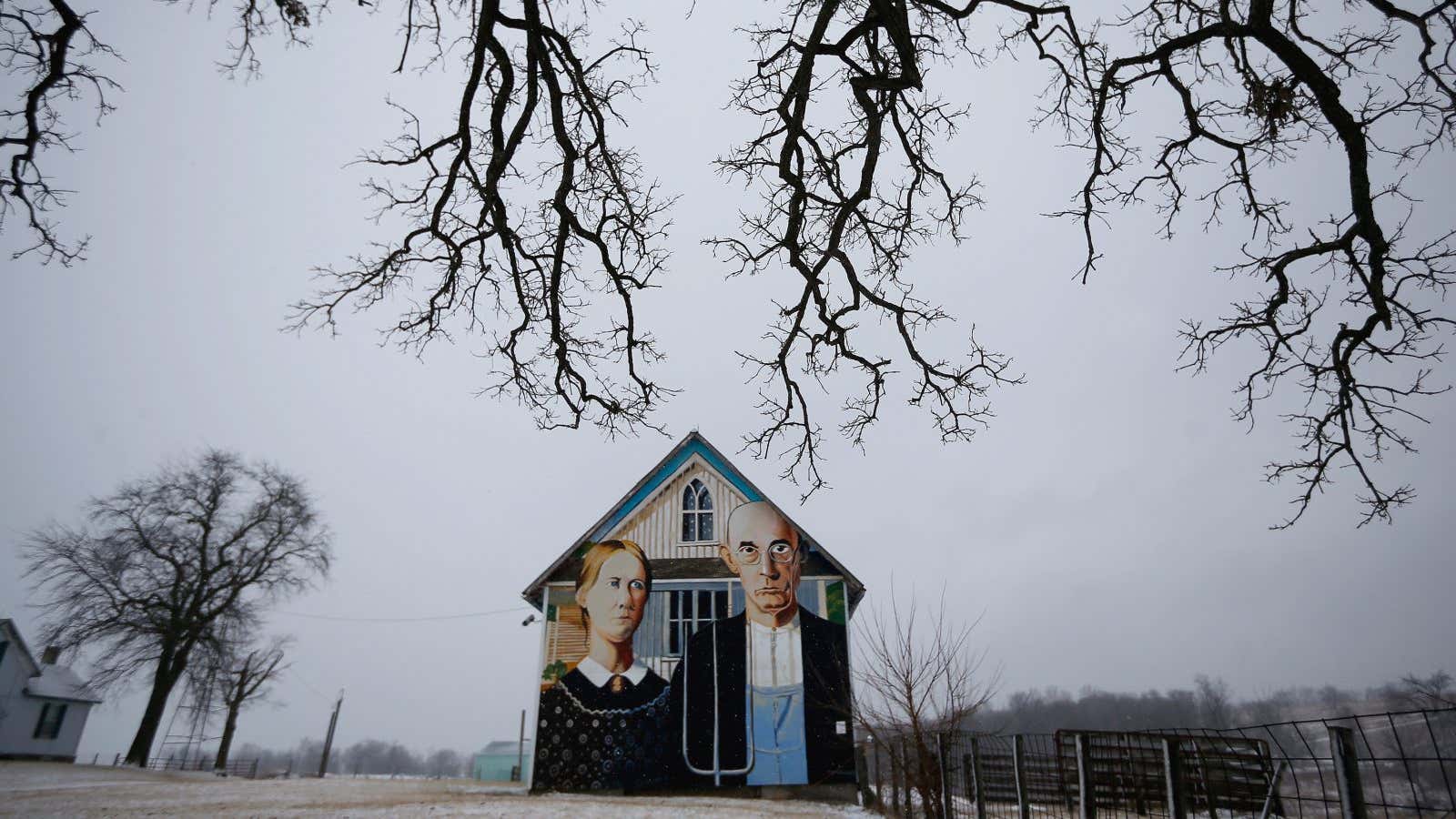Does it ever seem like everyone around you is freaking out about their love life in exactly the same way?
According to research from the University of Michigan, that’s because geography has a role in our approach to romance. Researchers analyzed data from Americans in all 50 states, looking for two specific relationship traits: Attachment anxiety, or clinginess, whereby people are preoccupied by the idea that they might lose their relationship. And avoidance anxiety, which manifests as a fear of intimacy and the tendency to clam up.
They found notable geographic differences across the country. Some states, like New York and West Virginia, were home to a disproportionately large number of people who suffered from the urge to cling on, which can include constantly checking in on a partner, needing to know their movements, and craving reassurance. Others, like Nevada and Kentucky, had more avoidant people, who shun intimacy and try desperately to hide their feelings.
These are the top ten states for glomming on and running off:
There are some big caveats to the way this research was conducted. The overall sample size was 127,070 adults, which is large. But the group was self-selected, because they all chose to fill out a survey on a particular website hosted by Penn State University and dedicated to the study of “positive psychology,” meaning—as the researchers note—that it was a non-representative sample. More women than men filled out the survey, making up 73.5% of the total respondents. And when the data are broken down, some states have very small sample sizes, meaning we can’t give too much credence to the fact that North Dakota came top in both categories: Only 187 people answered the survey there.
But despite the limitations, it’s still a big dataset, and getting concrete information about how people feel is always hard. The researchers noted that their findings were in line with previous research about regional variations in psychological characteristics.
“States in the mid-Atlantic and Northeast tend to be home to people high in neuroticism—a correlate of attachment anxiety,” they wrote, while frontier states “tend to be home to individuals who are extremely self-reliant and independent—traits found in highly avoidant people as well.” They also noted that the physical environment—extreme weather, for example—has been seen to have an impact on how people interact, while living close to others can make people behave more like their friends and neighbors.
In other words, sometimes people choose a place to live that reflects their personality, but there’s also a degree to which people change in reaction to their location.
The theory of anxious and avoidant attachment dates back to British psychologist John Bowlby, who in the 1950s developed a theory about children’s early experience of striving for love and kindness. If they don’t get enough, he hypothesized, the reaction can go one of two ways: into seeking security, or denying the need for it.
Meanwhile, those in Mississippi can relax—more—since that state came out with the lowest levels for relationship anxiety. Wisconsin scored lowest for avoidance.
